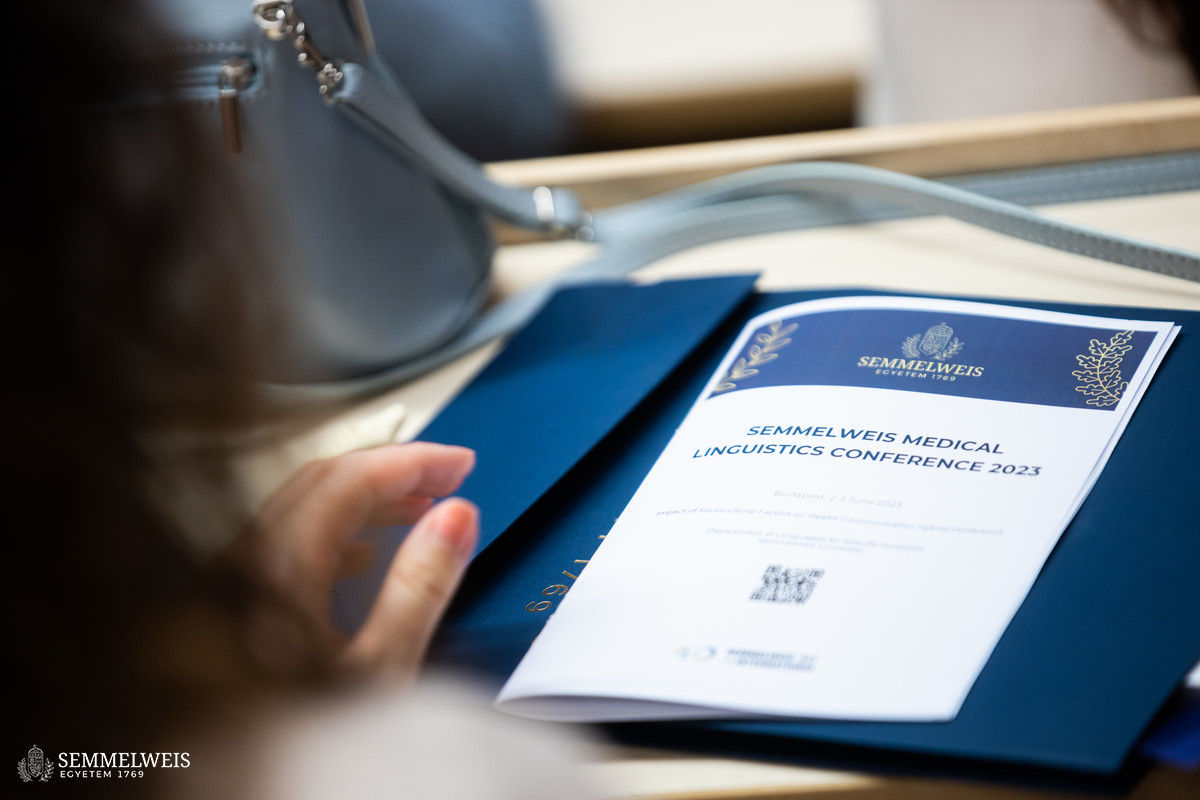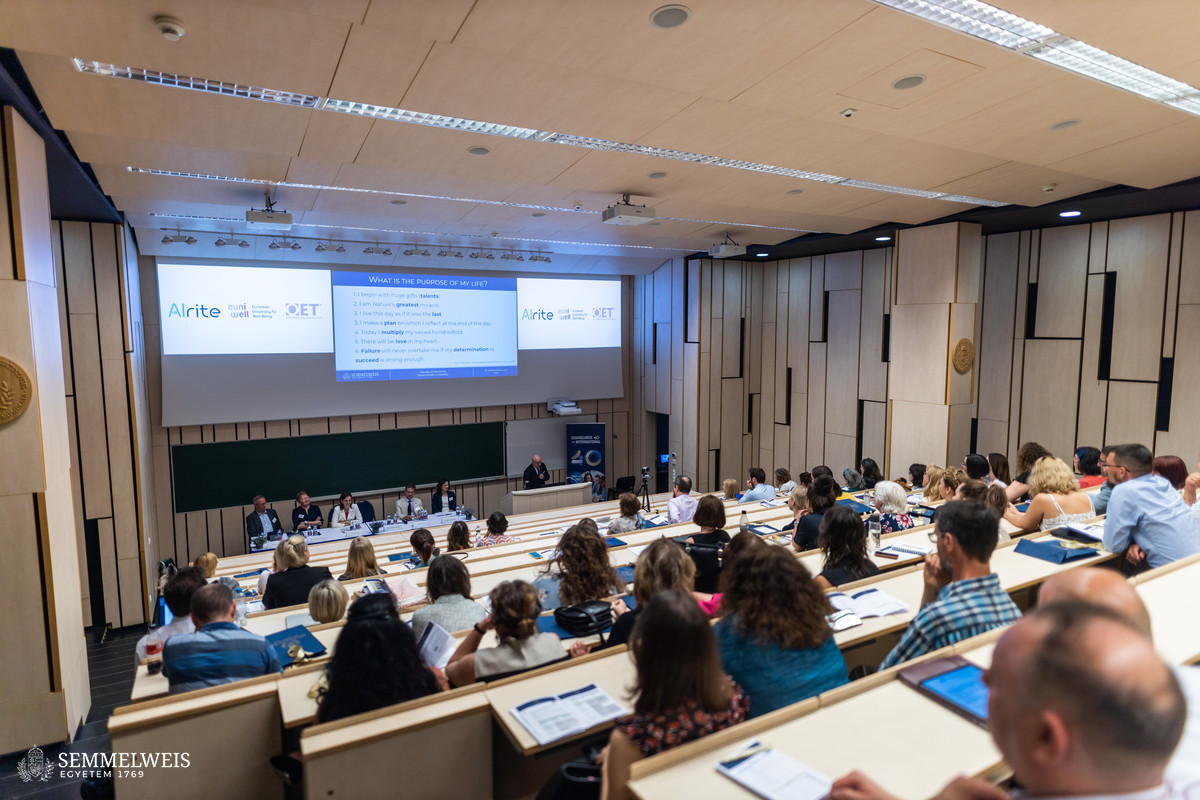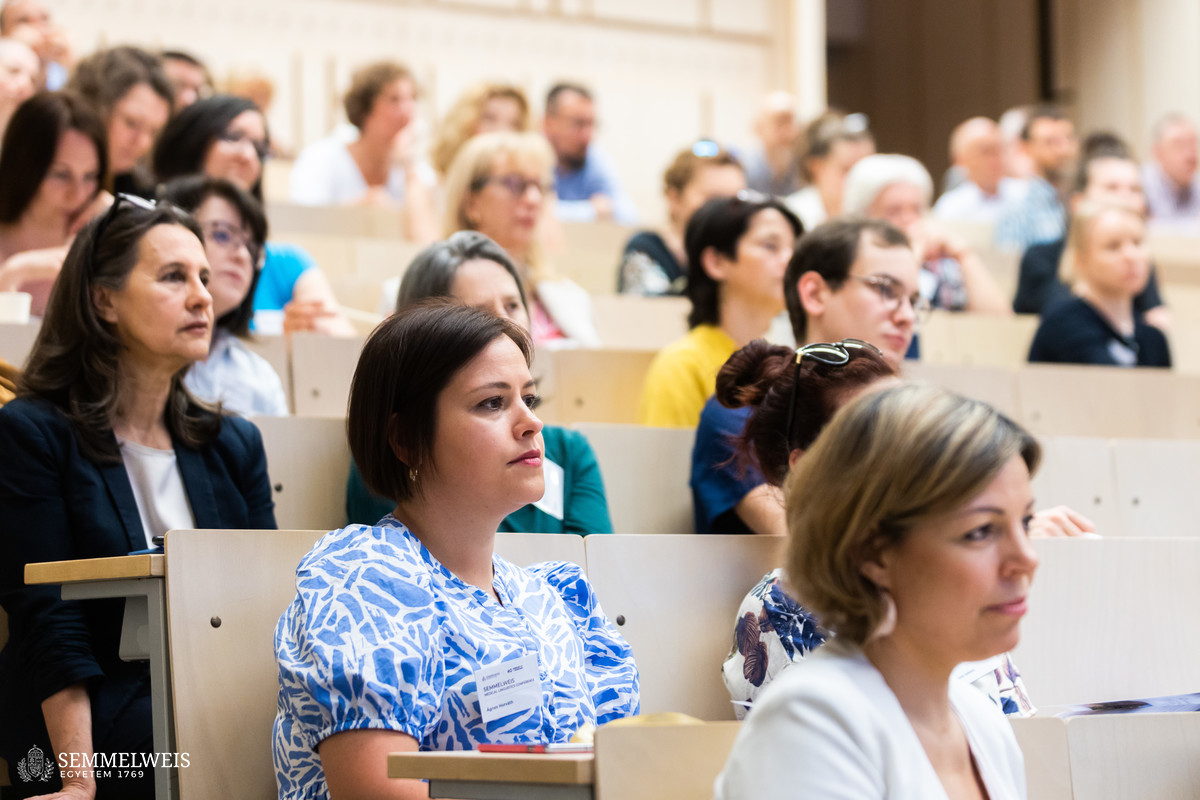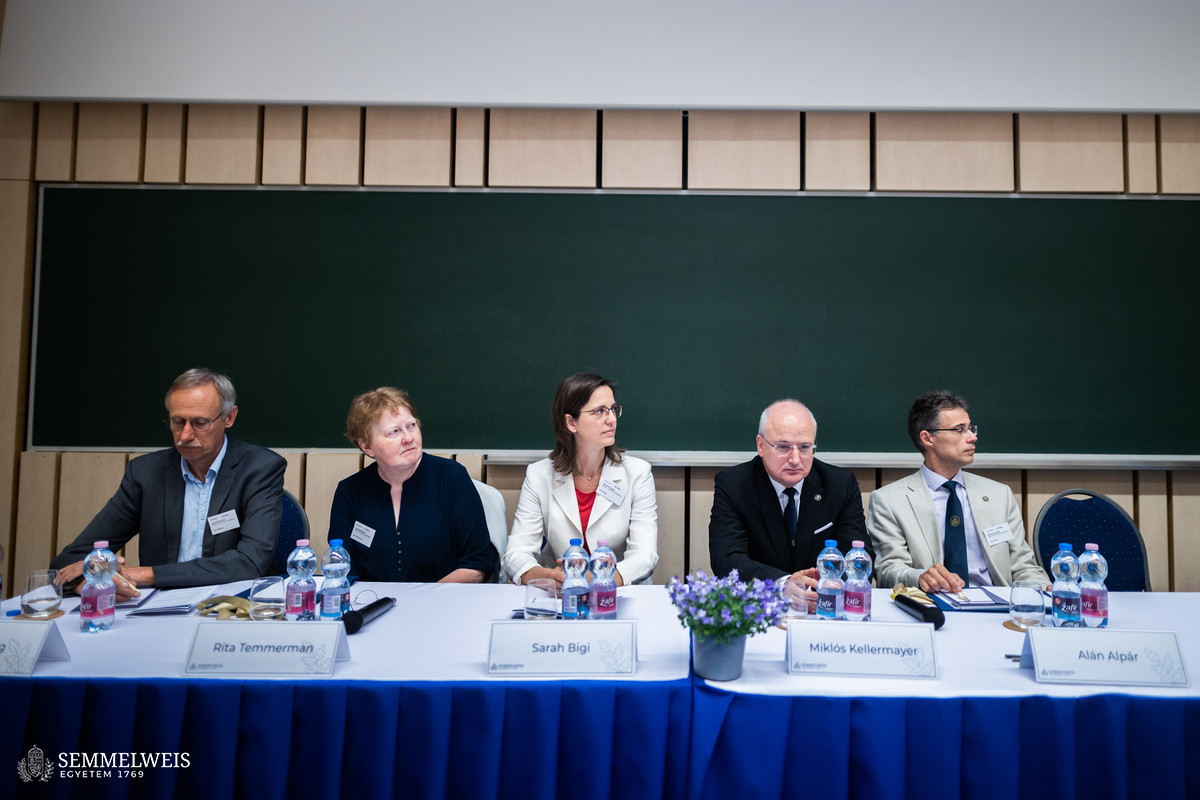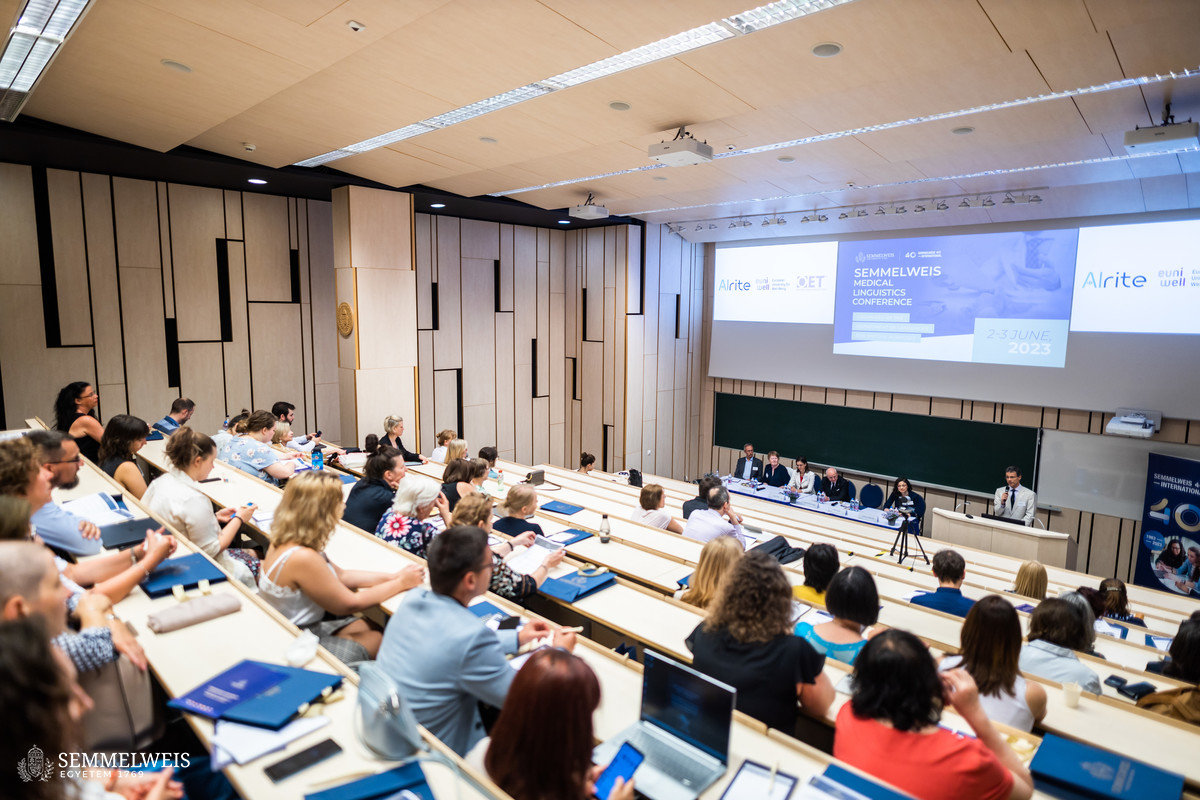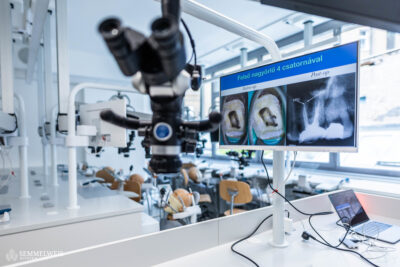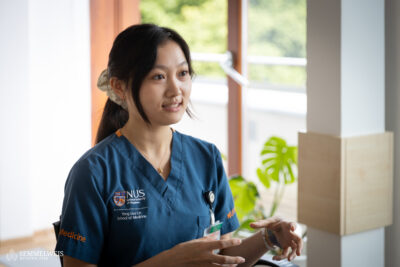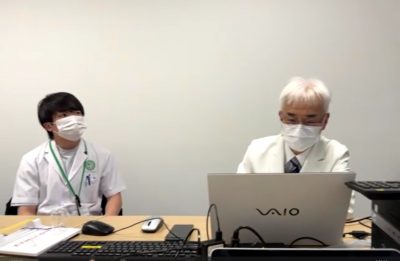The international event was opened by Dr. Alán Alpár, Vice-Rector for International Studies at Semmelweis University. He explained that his position was created about four years ago because the university wanted to emphasize how important international students are to the institution. He recalled that the first non-Hungarian students were welcomed 40 years ago, when German language training started, followed by the English language training launched in 1989. Ever since, foreign students arrive to Semmelweis in an ever growing number, currently constituting about the third of those enrolled.
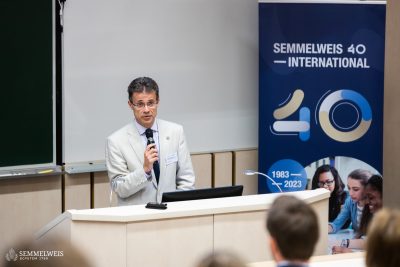 „However, this relationship is not without challenges. Sometimes, the educators’ linguistic skills are not satisfactory, and since foreign students come from over a hundred different countries around the world, English or German is not their first language either. It means that neither the lecturers, nor the students interact in their mother tongue, and often times, it result is a need of professional help,” said the Vice-Rector. He went on to say that the challenges deriving from the language barrier are sometimes very subtle, which makes the Department of Languages for Specific Purposes and its staff an indispensable part of the process. Non-Hungarian students ask for professional help in a growing number, especially within the medical faculty, with half of the students not speaking Hungarian in the first year.
„However, this relationship is not without challenges. Sometimes, the educators’ linguistic skills are not satisfactory, and since foreign students come from over a hundred different countries around the world, English or German is not their first language either. It means that neither the lecturers, nor the students interact in their mother tongue, and often times, it result is a need of professional help,” said the Vice-Rector. He went on to say that the challenges deriving from the language barrier are sometimes very subtle, which makes the Department of Languages for Specific Purposes and its staff an indispensable part of the process. Non-Hungarian students ask for professional help in a growing number, especially within the medical faculty, with half of the students not speaking Hungarian in the first year.
According to Conference Chair Katalin Fogarasi, Associate Professor at the Department of Languages for Specific Purposes, the mail goal of the event is to bring together linguists, health professionals, graduate and postgraduate students, and present the latest research results, exchange research and teaching methodology, and establish cooperations. She added that it is a common objective to enhance communication in healthcare in order to ensure patient safety, the effectiveness of treatments, patient education and research management. Katalin Fogarasi recalled that the predecessor of their institution was established in 1948, supporting the university’s triple unity of education, research-innovation and medicine.
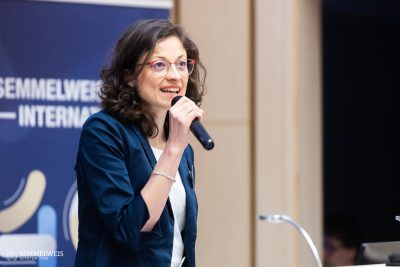 The Associate Professor explained that the graduate and postgraduate courses about medical terminology are based on authentic medical reports, a detailed instruction of medical documentation skills and the practice of patient-centered diagnosis disclosure. „Overall, the department can improve students’ linguistic skills for medical purposes in seven languages with native simulated patients and an opportunity to practice academic writing as well,” she pointed out.
The Associate Professor explained that the graduate and postgraduate courses about medical terminology are based on authentic medical reports, a detailed instruction of medical documentation skills and the practice of patient-centered diagnosis disclosure. „Overall, the department can improve students’ linguistic skills for medical purposes in seven languages with native simulated patients and an opportunity to practice academic writing as well,” she pointed out.
The institution also teaches Hungarian to foreign students within the framework of a practice-oriented curriculum and communication-based methodology. She went on to highlight the importance of interprofessional cooperation in research and innovation concerning linguistic aspects, and pointed out that they also have a medical translation, interpreting and proofreading service and postgraduate training for medical translators and interpreters in Hungarian-English and Hungarian-German language pairs. The Associate Professor added that the Department of Languages for Specific Purposes organizes a number of language examinations (PROFEX, TELC) including DFP in French, and they offer a preparation course for all language exams at all levels.
The two-day event’s plenary speeches featured monolingual and multilingual culture-bound communication, investigating levels of explanatory depth in online health support communities, and the sociocultural factors in patient discourse online by renowned professors from Italy, Belgium, Denmark, France and the UK. The parallel sessions were focusing on metaphors in healthcare, medical translation, patient-centered communication, medical interpreting and language barriers, to name a few.
Viktória Kiss
Photo: Bálint Barta – Semmelweis University
